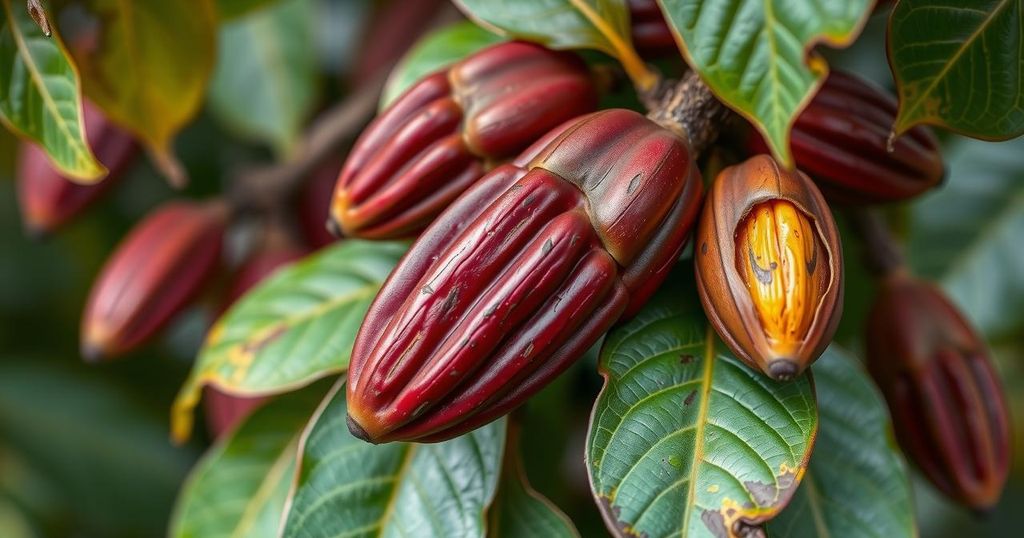Cocoa Prices Decline Amid Dry Weather Concerns; Sugar Prices Surge

Cocoa prices have slightly decreased to $11,936 per metric ton following record highs, while sugar prices have increased to 19.74 cents per pound due to supply constraints in Brazil. This volatility reflects ongoing weather challenges impacting agricultural production, particularly in cocoa and coffee sectors, highlighting the importance of environmental factors in market dynamics.
Cocoa prices have recently experienced a slight decline after achieving record highs, with New York cocoa futures now standing at $11,936 per metric ton. This decrease occurs alongside a noted increase in cocoa arrivals, which are up by 30.1% since October 1, despite forecasts indicating a slowdown in port arrivals from the Ivory Coast due to dry weather conditions affecting production for the 2024/25 season. Concurrently, sugar prices have surged to 19.74 cents per pound, primarily driven by supply constraints in Brazil, where mill closures have diminished sugar output. Notably, March white sugar futures have risen to $515.70 per ton, confirming an upward trend in the sugar market. In contrast, coffee futures have taken a hit, with Arabica quotes dropping to $3.1645 per pound and robusta futures diminishing to $4,958 per ton, reflecting broader commodity market fluctuations influenced by adverse weather patterns in Brazil and Africa.
The dynamics of soft commodities, particularly cocoa and sugar, are uniquely intertwined with global weather patterns and agricultural outputs. The recent impacts of drought conditions in Brazil and the Ivory Coast have introduced volatility in the market. Investors must remain cognizant of these developments, given their potential to influence not only commodity pricing but also broader economic forecasts and agricultural policies globally. The rising costs of sugar juxtaposed with cocoa’s drop reflects a critical balance affected by regional climate conditions.
In summary, the cocoa market has witnessed a dip in pricing following record highs, influenced by changing weather conditions and their implications on production forecasts. Conversely, rising sugar prices reveal supply challenges in Brazil, underscoring the fragility of soft commodity markets. Investors should monitor these shifts as they could have far-reaching impacts on market strategies and economic outlooks pertinent to emerging markets reliant on agricultural exports.
Original Source: finimize.com








